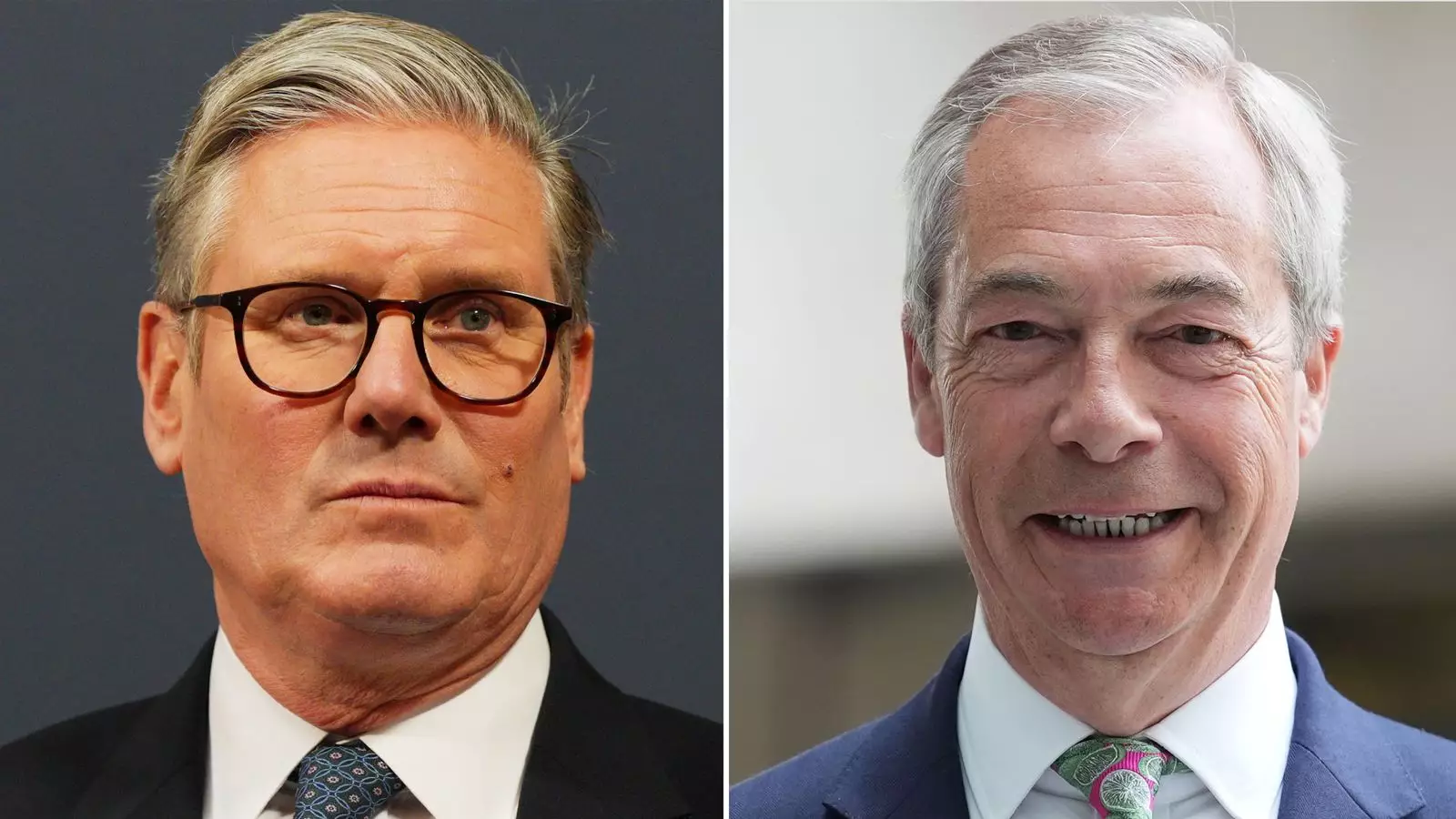The political stage in the UK has become a precarious arena, where economic policies are bandied about like playthings. At the forefront, Nigel Farage, the self-proclaimed crusader for the common man, has grand designs that could just as easily land the nation in an economic quagmire reminiscent of Liz Truss’s disastrous tenure. Farage’s current proposals, which include reversing cuts on winter fuel payments and abolishing the two-child benefit cap, paint an alluring picture. These commitments appeal to the populace’s immediate, tangible needs. However, such policies are packed with significant economic irresponsibility and exhibit a level of recklessness that should raise alarm bells for anyone concerned about fiscal sustainability.
With a promise to slash income tax and elevate personal allowance to an excessive £20,000, Farage is engaged in a dangerous gamble. Analysis from the Institute of Fiscal Studies reveals that such measures could incur staggering costs of up to £80 billion annually. One cannot help but see these ambitious tax cuts as little more than smoke and mirrors, designed to obscure a lack of coherent fiscal strategy. Imagine prioritizing tax breaks over necessary public investments or infrastructure improvements—this ludicrous notion could result in the very financial chaos that plagued Truss’s administration.
Echoes of Economic Chaos
Sir Keir Starmer’s recent remarks provide an important counter-narrative to Farage’s tempestuous claims. Describing Reform UK’s agenda as a “mad experiment,” he aptly connects the dots between Farage’s policies and the very meltdown that left the British public floundering under rising costs and curtailed services. The similarity between Farage’s economic proposals and those of Truss is unsettling, as both appear to treat the economy as little more than a high-stakes gambling table, where the populace’s financial well-being is at risk.
Farage asserts that the exorbitant costs of his agenda can be offset by eliminating efforts towards net-zero emissions and repealing provisions for housing asylum seekers—two areas that, while often contentious, are crucial to long-term sustainability and moral responsibility. This approach reflects a troubling pattern of favoring short-term gain over the long-term health of the economy and society at large. Previous decisions to prioritize unfunded tax cuts led the UK down a steep path to economic instability; repeating this may be even more disastrous.
Public Sentiment and Electoral Outcomes
Despite the inherent dangers, Farage’s stock has risen in recent days, particularly following an impressive local election output that saw Reform UK gain control over significant parliamentary seats and councils. This ascent raises critical questions about public sentiment towards Labour and whether Starmer’s party can effectively communicate a vision that resonates with voters’ immediate needs while ensuring fiscal prudence. The gamble of trying to undertake policies to appease Farage’s supporters is akin to a tightrope walk; one misstep could see Labour plummeting into irrelevance.
Starmer has already faced pressure from within his party to shift positions on some of his policies, including previous standpoints on winter fuel payments. The fear of letting Farage monopolize the political discourse is palpable, and if not navigated carefully, Starmer may find himself etched into political obscurity, echoing the disillusionment that many felt during Truss’s short-lived premiership.
A Call for Responsibility
In times of economic instability and uncertainty, voters crave certainty and responsibility from their leaders. They do not desire play-acting at the expense of their family’s financial future. While Farage continues to dangle the lure of immediate tax relief, the sobering reality is that promises made on the back of fiscal daydreaming are recipes for disaster. The electorate deserves leaders who display not just charisma but an informed command of economic realities. It is imperative that the political discourse shifts towards genuine policies that hold up under scrutiny and prioritize the well-being of all citizens, rather than serving as fodder for populist rhetoric.

Leave a Reply